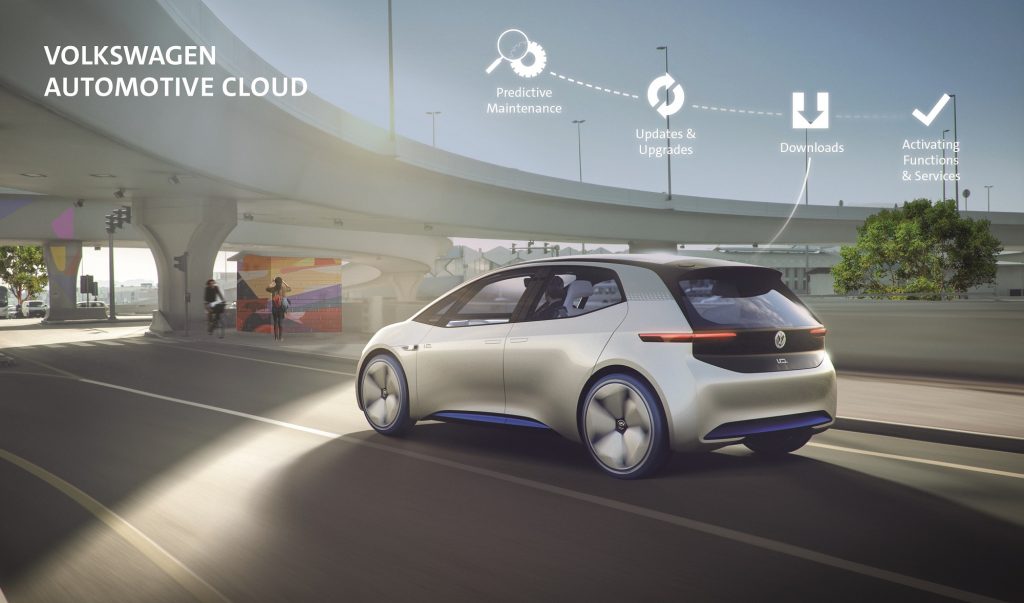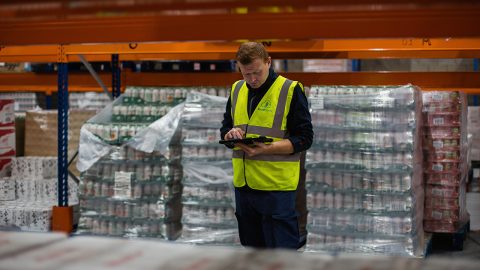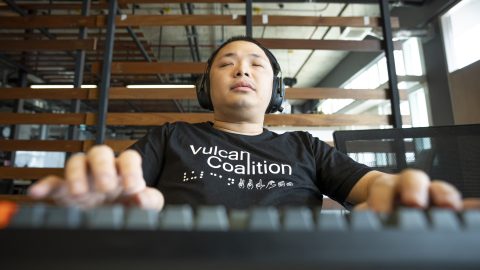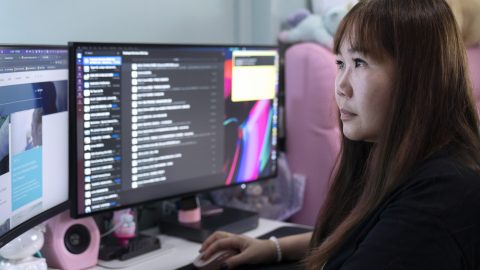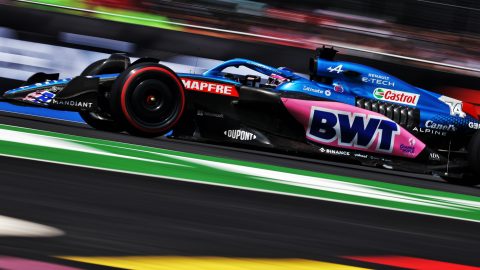Volkswagen and Microsoft partner to give drivers a connected, seamless ride
As Volkswagen began planning for its push into electric cars and autonomous technology, the company faced a major challenge — how to build a connected car that enabled drivers to seamlessly access digital services on the go.
A driver might, for example, be listening to music at home and want to continue listening as she gets in her car, then need to jump on a conference call, then check her online calendar. Accessing those services on the road can be problematic, since applications from third-party providers typically don’t talk to each other in a seamless way.
The issue is one automotive companies worldwide are grappling with as they seek to create connected, customized driving experiences that move across customers’ daily lives. To address that challenge and gain the knowledge to build its own mobility services, Volkswagen turned to Microsoft. The two companies are partnering to develop the Volkswagen Automotive Cloud, a dedicated global cloud platform that will provide digital mobility services across the automaker’s portfolio.
“I think this is an industry benchmark in terms of joining forces and putting the best of each company at the table and building the business together,” says Heiko Huettel, head of connected car for the Volkswagen Group.
As Volkswagen aims to transform its company to a digital services-driven business, the Volkswagen Automotive cloud will be built from the ground up on top of Microsoft’s Azure cloud and IoT Edge platform as its technology foundation. To start, the cloud will leverage Microsoft cloud services including Azure IoT, PowerBI and Skype to help create in-car consumer experiences, telematics and productivity solutions. By building its own dedicated automotive cloud, Volkswagen will be able to leverage consistent mobility services across its entire portfolio of brands.
Volkswagen will establish a new legal entity located in North America close to Microsoft’s headquarters in Redmond, Washington, to build its new automotive cloud. To help bolster those efforts, Microsoft will provide hands-on support, including initial engineering consulting resources. The new entity will be governed by an executive council with business and technical leaders from both companies.
The initiative comes at a pivotal time for Volkswagen, one of the world’s largest automakers. Software and associated services will be key to differentiating automakers going forward, Huettel says.
“Simply building great cars will not be enough, and that’s why the Volkswagen Group — and especially its core brand of Volkswagen passenger cars — is investing heavily in electric and autonomous technology,” he says. “But even more, Volkswagen is also speeding up the development of its ecosystem with its own software know-how and the strength of external partners. We envision the automobile evolving into a central hub in the Internet of Things, enabling customers to take their world into their vehicles.”
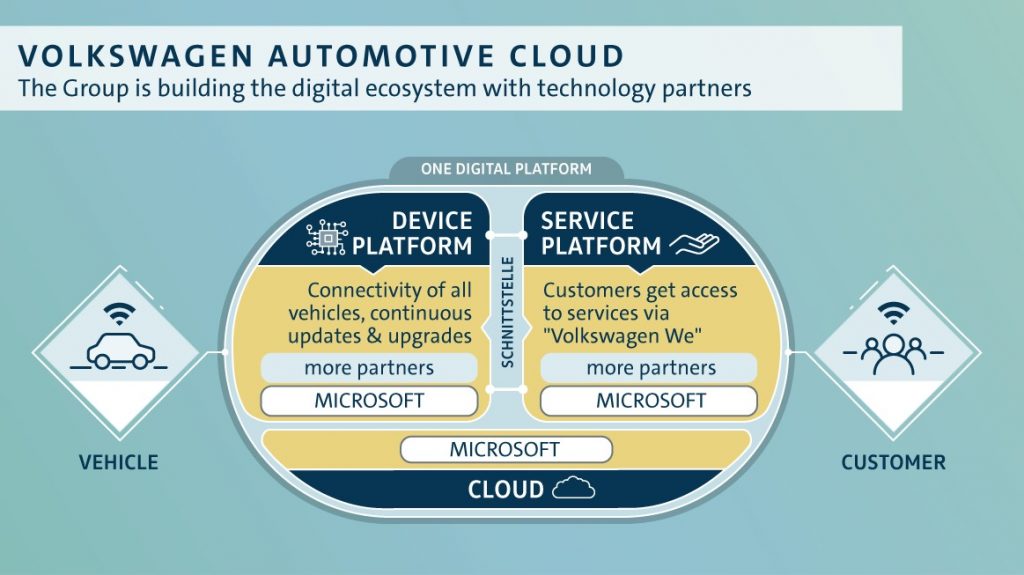
The Volkswagen Automotive Cloud will be integral to those efforts, and Microsoft will play a key role in helping the company transform to a software and service-driven model. The new entity will have work streams focused exclusively on the company’s culture and transformation to the new model, in addition to the technical work streams, and Huettel says Volkswagen is eager to learn how Microsoft has evolved under CEO Satya Nadella.
Huettel noticed that change during a visit to Microsoft three years ago, while working for another automaker. During a meeting on campus, Huettel read the announcements on the company’s digital display boards about employee training sessions and other events, and was struck by the open atmosphere he observed.
“This was not the Microsoft I’d seen a few years earlier,” he says. “That’s when my thinking changed about what transformation really means and how transformation in such a big company can really happen. My whole world, my little black and white picture, broke down and I saw that if such a large company like Microsoft could change, why can’t the automotive industry change? Why can’t we embrace what I’m seeing there?”
As Volkswagen moved toward its goal of creating a digital platform to integrate connected cars, cloud and services, Huettel says, it recognized a need to be more agile and establish a single digital platform. The company has revamped its digital strategy in recent months, integrating some operations and acquiring several software companies. But to become a customer-centric company with an ecosystem that connects its vehicles, Volkswagen decided to partner with Microsoft.
“We came to the conclusion that we needed to change in a revolutionary way,” Huettel says. “We want to leverage what we can from Microsoft’s culture and Microsoft’s technology. We want to be the Microsoft of the automotive industry, in terms of being seen as the company that made a digital transformation and is really perceived as one of the digital players in the market.”
Dee Templeton, Microsoft’s product lead on the partnership, said the company will work hand-in-hand with Volkswagen on that transformation. Given the Volkswagen Group’s 12 brands — Volkswagen itself being the largest — and 640,000 employees worldwide, it will be a complex endeavor.
“We’re going to share our own learnings from the transformation under Satya,” Templeton says. “We want to help Volkswagen meet its bold ambitions for its future, and what we can offer is pretty unique in terms of showing them how Microsoft transformed its own culture and how we have embraced transformation holistically. It’s not just about software. Leveraging our expertise and our decades-old heritage in developing software from the bottom up is another reason partnering with Microsoft was so important to them.
“This will be a deep and multifaceted partnership that involves developing software that leverages the best the cloud can offer and most importantly, one that fosters a ‘one team’ culture to make it a reality.”
The new entity, Templeton says, will help Volkswagen evolve into a software-driven company that can connect directly with customers and offer services in multiple ways, from pushing software updates directly out to vehicles to allowing drivers to purchase services from their cars or through mobile apps.
“That would have been extremely hard or impossible to do if cars were not connected,” she says. “Those types of things would not have been possible in the past.”
To Huettel, the initiative encompasses more than the cloud.
“I like to call it an integrative ecosystem,” he says. “Our approach is to be where you are, while you are driving, traveling, being transported. That is where we want to head, and that is what we want to build jointly with Microsoft.”
Images courtesy of Volkswagen.

